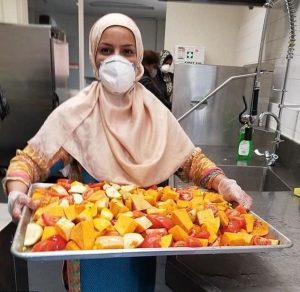Eid al-Adha 2024: Spreading Joy and Sustenance Through Sacrifice
Eid al-Adha, a cornerstone of Islamic tradition symbolizing sacrifice and compassion, was observed with immense dedication in 2024. This report highlights how your generous contributions, including those made through innovative cryptocurrency donations, translated into tangible relief and moments of joy for vulnerable communities across the globe. We aimed to not only provide essential sustenance but also to uphold the dignity and celebrate the spirit of Eid for those facing hardship.
Eid al-Adha 2024: Sharing Blessings with Crypto Donations
Eid al-Adha, the “Festival of Sacrifice,” is a time for Muslims around the world to come together, celebrate, and share their bounty with those less fortunate. This year, thanks to the generosity of our incredible donors, including those who embraced the innovation of cryptocurrency donations, we were able to make a significant difference in the lives of many in need.
This report details our Eid al-Adha 2024 activities and the impact of your contributions. At the beginning of Dhul-Hijjah 2024, in another article, we explained our goal to achieve the distribution of meat in Eid al-Adha 2024, which you can read here.
Distributing Hope Through Food
Through your donations, we were able to secure a total of 317 kilos of sacrificial meat. This meat was then distributed strategically to maximize its impact.

- Hot Meals for the Hungry: 120 kilos of meat were used to prepare hot meals in Afghanistan, Ethiopia, Somalia, and Yemen. During this Eid al-Adha, these meals provided nourishment and a sense of celebration to over 2,800 people in need.
- Delivering Raw Meat Packages: The remaining 197 kilos were distributed as raw meat in sanitary packages across Afghanistan, Palestine, and Syria. This method ensured families could prepare meals according to their traditions and dietary needs.
A Focus on Afghanistan: A Beacon of Hope Amidst Crisis
A significant portion of our efforts were directed towards Afghanistan, a country reeling from the devastating floods of 2024. These floods destroyed over 8,000 homes, displacing countless families and creating a desperate need for humanitarian aid. Your contributions helped ensure these displaced communities received the vital protein source of sacrificial meat during Eid al-Adha.
The Rewards of Charity
The Quran, in Surah Al-Hajj [22:36-37], beautifully captures the essence of sacrifice during Eid al-Adha:
“And the camels and cattle We have appointed for you as among the symbols of Allah ; for you therein is good. So mention the name of Allah upon them when lined up [for sacrifice]; and when they are [lifeless] on their sides, then eat from them and feed the needy and the beggar. Thus have We subjected them to you that you may be grateful. Their meat will not reach Allah , nor will their blood, but what reaches Him is piety from you. Thus have We subjected them to you that you may glorify Allah for that [to] which He has guided you; and give good tidings to the doers of good.”
This verse emphasizes that the true value of sacrifice lies in our devotion to Allah and our compassion for those less fortunate. The meat itself is not the offering, but a symbol of our willingness to share our blessings.
Gratitude and a Vision for the Future
We extend our deepest gratitude to all our donors, including those who embraced the convenience and transparency of cryptocurrency donations, for their unwavering commitment to alleviating suffering and promoting human dignity. Your generosity has enabled us to bring hope and sustenance to vulnerable communities during Eid al-Adha.
Looking Forward
As we move beyond Eid al-Adha, the need for food security remains a pressing issue in many parts of the world. Your continued support, through traditional or innovative methods like cryptocurrency donations, allows us to make a lasting difference. If you missed the Thawab(reward) of this year’s Eid al-Adha sacrifice and want to participate in the Thawab of Qurbani, we have ongoing active Qurbani projects throughout the year that you can participate in here. We look forward to partnering with you again in future endeavors to ensure everyone has access to the basic necessities of life.
























